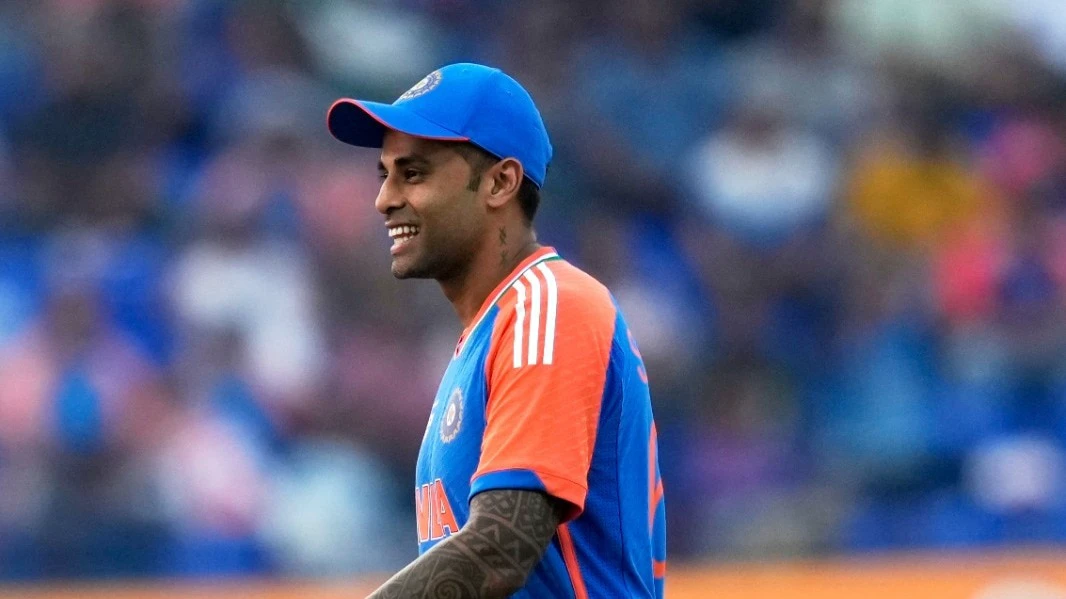In meaningless pursuits, Surya Kumar Yadav reveals his character. O Captain, My Captain.Slotting himself at No. 11 in Friday’s match against Oman at the Asia Cup, not coming in to bat for easy rums– that is Surya.
We will come to that. But, we need to rewind.
After the facile win against Pakistan, Surya was thrown to the press. He was accused of not shaking his hand with the rival captain, Salman Agha-a decision taken by others to justify Indian participation in the Asia Cup, a meaningless rubber.
Bear in mind that Surya is a batter. His job is to score runs, and, because he is also the captain, lead Team India on the field, not in geopolitical sparring.
At the press conference that follows the Pak encounter, he is expected to bear the burden of India-its expectations, its animus, its billion hopes, its unsaid frustration with the participation in a tournament the country just doesn’t want to watch. On his shoulders is a rare burden-he is the first captain to face Pak after Op Sindoor, and yet be a sport.
At the post-match presser, a Pakistani journalist pops a question about his decision not to shake hands with Agha. The question is interrupted midway by someone, perhaps trying to protect him from politics. That’s when Surya shines.
His face retains the pre-query balance. The chewing gum in his mouth feels the same violent molars. “Bindaas poocho,” he says. Then he goes on to answer the question. Bindaas-fearless. “Some emotions are beyond the spirit of the game.”
O Captain, my Captain. He really is bindaas. He says these lines with the swag of his bat. It is a masterstroke.
The Selfless Star
In an era where cricket often teeters between individual brilliance and team glory, Suryakumar Yadav-India’s T20I captain and the game’s 360-degree wizard-stands as a beacon of selflessness.
SKY’s meteoric rise from Mumbai’s domestic grind to global stardom is not just a tale of runs and records but a masterclass in putting team above self.
On Friday, in Abu Dhabi’s Sheikh Zayed Stadium, SKY embodied this ethos yet again during India’s 188/8 against Oman in the Asia Cup 2025 group-stage finale.
To help his team practice batting, he didn’t even bat. Who gives up an opportunity to set records, play in the nets of international cricket? Surya does. Because, he doesn’t need them-the damned records.
Surya’s statistical footprint is already staggering, but it’s the context that screams selflessness. In 86 T20Is, he has amassed over 2,500 runs at a jaw-dropping strike rate of 166, with four centuries.
Most of these runs come batting at No 3 or lower, a slot where he absorbs pressure rather than chasing openers’ glory.
In the IPL, his 3,500+ runs for Mumbai Indians (MI) include 717 runs earlier this year as MI’s top scorer, often stabilizing collapses rather than hogging the strike.
Since taking the T20I captaincy in July 2024, SKY has won 80% of India’s series, including clean sweeps against Sri Lanka and Bangladesh. His leadership isn’t about barking orders but fostering a culture of self-effacing brilliance.
In the record-breaking 297/2 against Bangladesh in October last year, SKY’s 70* off 40 complemented Sanju Samson’s 100 off 40, a testament to his mantra: “I want selfless cricketers.”
In case you didn’t notice, here is a fact: since Sky rose on the horizon, India’s middle-order collapse rate has dropped 25% post-2024 WC, per ESPN models.
But, Surya is more than numbers.
On Friday, in a dead rubber against Oman, he retired himself after the toss. Winning the toss and opting to bat, he shuffled the order dramatically: Promoting Sanju Samson to No. 3 (who responded with a gritty 56 off 45), Hardik Pandya, Axar Patel, and even Shivam Dube ahead of himself. The result? Abhishek Sharma’s explosive 38 in the powerplay propelled India to 60/1 early, but as wickets tumbled-Shubman Gill (5), Hardik (low score), Axar, and Dube falling cheaply-the middle order got vital minutes. Tilak Varma chipped in with a cameo, Harshit Rana smashed a last-over six, and India posted a tournament-high 188/8 without SKY facing a single ball.
This wasn’t oversight; it was calculated selflessness. SKY demoted himself to give fringe players batting exposure ahead of the high-stakes Super Fours, where four matches loom in seven days. This move epitomised SKY’s philosophy: team evolution over personal stats, even in a low-pressure game.
The Journey of Sacrifice
SKY’s path to stardom wasn’t handed to him. At 31, after a decade of domestic grind (754 Ranji runs in 2011-12), he debuted in 2021. His late bloom reflects a player who waited, adapted, and turned into a predator. He is out of the reckoning in Test cricket, a backbencher in ODIs, and on borrowed time in T20s. Yet, he is not chasing records, or easy opportunities.
In a sport where individual stats often overshadow team goals, SKY’s selflessness is a clarion call. His willingness to bat lower, dive for improbable saves, or- as today-forgo the crease entirely challenges the “me-first” culture creeping into modern cricket.
As captain, he’s scripting a T20 dynasty while mentoring a fearless squad. For fans, SKY is a reminder that cricket’s soul lies in collective triumphs. For young players, he’s proof that grit and sacrifice outshine fleeting heroics.
SKY is already a great cricketing legend. His iconic catch in the T-20 final against South Africa in 2024 will be played, replayed for eternity. For Indian fans, it will be a trigger for goosebumps till kingdom come.
His Oman sacrifice-a quiet decision that roared louder than any six-will go down in scorecards just like that catch. It will be inscribed in gold on the manual of selfless captaincy.
O Captain, my dear, Captain. By not wielding the bat, you immortalised the warrior king’s sword.
Stay updated on Asia Cup 2025 with India Today! Get match schedules, team squads, live score, and the latest Asia Cup points table.
